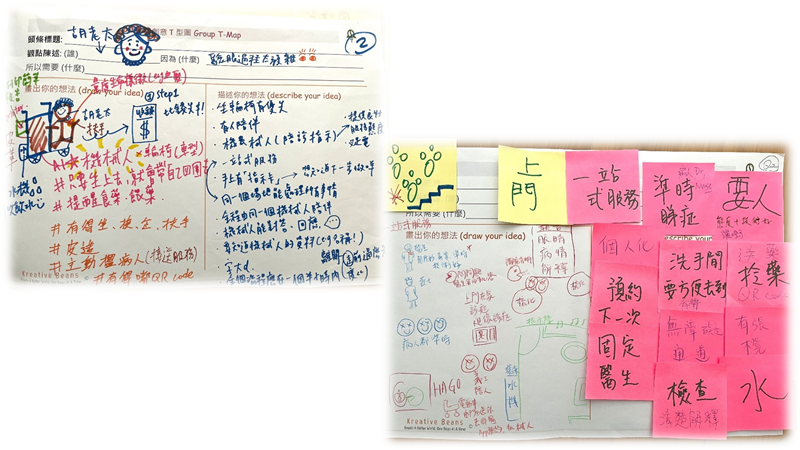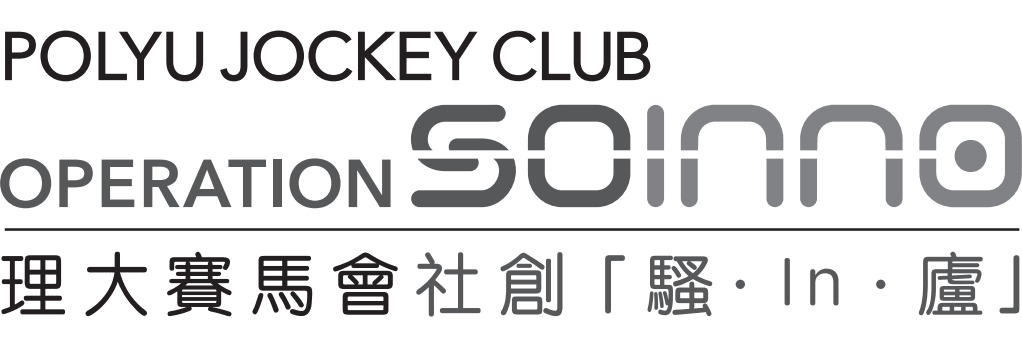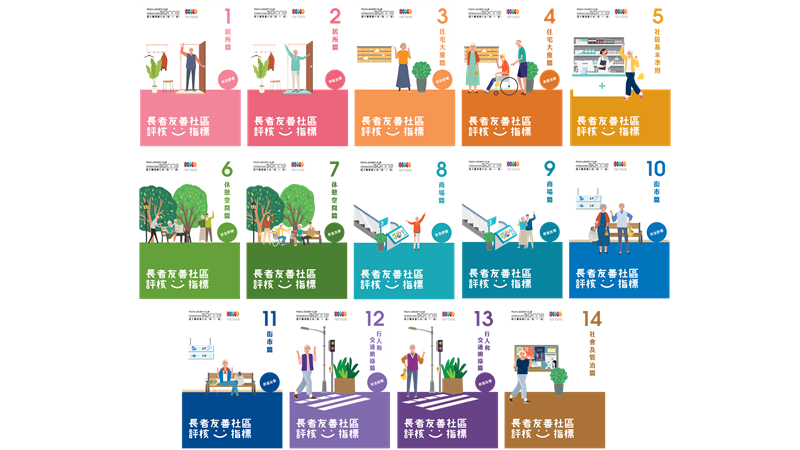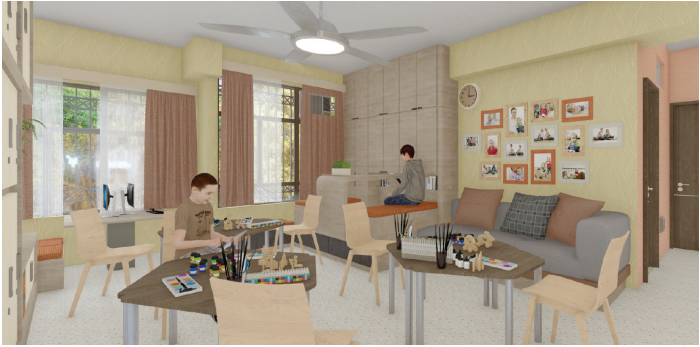Overview
‘From Eye Health to Dementia’ is a joint initiative led by The Hong Kong Polytechnic University’s Jockey Club Design Institute for Social Innovation (JCDISI), Kreative Beans, and the School of Optometry at PolyU. In mid-2023, the project team conducted a series of eye health education talks and co-creation workshops specifically designed for older adults with cognitive impairment. The primary goal of these sessions was to improve public understanding of eye diseases commonly found in the elderly and assist them in identifying early symptoms of cognitive impairment through their eye conditions.
Outcome
To address the challenges faced by elderly individuals with cognitive impairments during eye examinations and to increase awareness about the link between dementia and eye diseases, the team developed a co-creation ‘trilogy’ program. This initiative aimed to gather the needs and ideas of older persons with dementia to devise more user-centered solutions. The trilogy encompassed health talks on eye health, co-creation workshops, and comprehensive eye examinations. It kicked off with a public discussion on common eye conditions and basic eye care to empower participants, followed by interactive workshops that actively involved them in the co-creation process. Through this approach, participants pinpointed the difficulties they encountered before, during, and after eye examinations and contributed to designing prototype solutions based on these insights. This trilogy offers valuable insights to hospitals and eye clinics in both public and private sectors to design and enhance a more user-friendly experience in the future.
The project team also created an ‘Elderly-Friendly Pamphlet’ for older participants and their families to assist in maintaining eye health on a daily basis, focusing on prevention rather than treatment. This booklet serves as a concise guide, offering tips for daily eye care and self-assessment of common eye conditions. Additionally, it was made available at PolyU’s PolyVision Eyecare Centre to further boost public education on eye care and alleviate anxiety by explaining the eye examination process more thoroughly.
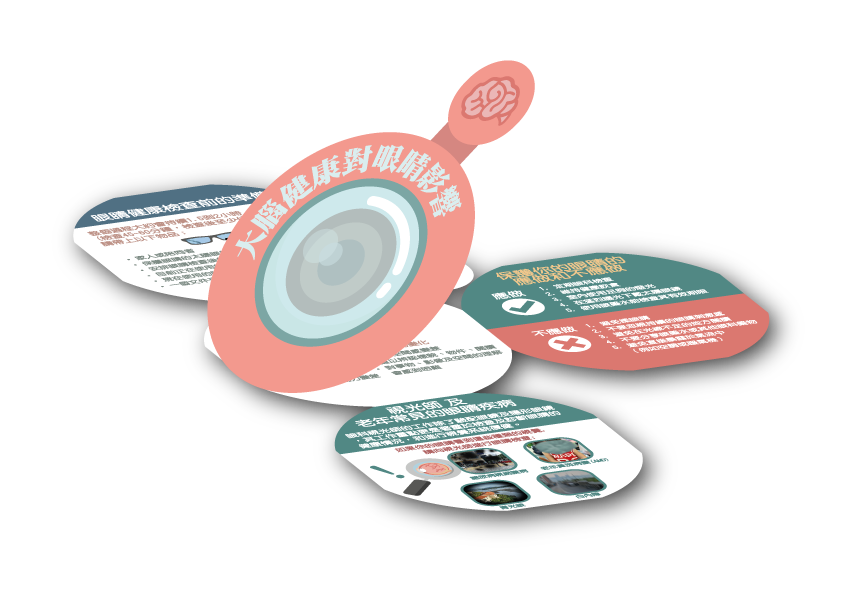
Process
Inspiration
This initiative sought to investigate the link between dementia and eye health, aiming to enable early detection of dementia via regular eye examinations. Central to achieving this was the creation of a ‘user-friendly’ eye examination process. The team took this chance to enhance community awareness about dementia during the eye examination process. Composed of individuals from varied academic and professional spheres, the project team included Keilee, the founder of Kreative Beans and a registered nurse. Her experiences with design thinking in hospital environments informed the project’s approach. Keilee observed that some hospital eye clinics have tailored their eye examination processes to prioritize patient comfort and convenience. By designing a setup where all diagnostic procedures are conducted in a single location, these departments eliminate the need for patients to move through the hospital while experiencing eye discomfort. Motivated by these effective practices, Keilee aspired to contribute positively to society. She aimed to advocate for these ‘good practices’ within the community, ensuring that older adults benefit from this thoughtful, bottom-up approach to design thinking.
Ideation
To better comprehend the needs of the target users (elderly individuals with dementia), the project team employed the Mini-Mental State Examination, a concise cognitive test, to identify and screen those with cognitive impairments who would be involved in the co-creation trilogy.
Prior to initiating the trilogy, the project team dedicated significant effort to refining the workshop design. This involved conducting Gemba Walks, where they visited eye clinics and performed on-site observations to deeply understand the true needs of their target demographic. During these visits, the team discreetly monitored older adults specifically those with mobility issues, those of advanced age (nearly 90 years old), and those with mild dementia—conditions commonly seen in eye ophthalmic clinics. The insights from these observations enabled the project team to empathize with the complexities and challenges these individuals face during examinations. Following this, the team engaged ophthalmic healthcare professionals who specialize in eye health and dementia care to join the design process. These professionals contributed their expertise and helped in identifying a convergence point that addressed both patient needs and practical considerations. The co-creation workshops effectively recruited 56 older participants, who had an average age of 73.5 years, and all successfully completed the entire co-creation trilogy.
Implementation
In the first part of the co-creation trilogy, the project team organized eye health talks at both the Tung Wah Group of Hospitals Wong Cho Tong District Elderly Community Centre and the S.K.H Holy Carpenter Church District Elderly Community Centre. During these talks, the optometrist explained the link between dementia and eye health and shared insights on eye care. The team facilitated interactive games to help participants understand common eye conditions in old age, such as cataracts, macular degeneration, diabetic retinopathy, and glaucoma. The purpose was to increase the participants’ awareness and urge them to seek medical attention if they noticed related symptoms. Additionally, the project team introduced the eye examination process and addressed the challenges participants faced during eye examinations.
The second segment of the trilogy was dedicated to enhancing the eye examination process and the overall user experience. Employing design thinking strategies, the project team segmented the eye examination journey into three principal phases: pre-examination, examination, and post-examination. They invited participants with cognitive impairments from the workshops to develop user experience maps, which assisted in clearly articulating their needs and expectations. The team gathered data on the participants’ pain points during these workshops and suggested improvements, such as a one-stop service to minimize the need for multiple visits and a unified ‘contact point’ for continuous follow-up on the examination process. This approach helped avoid the necessity for users to reiterate their medical conditions to different staff members. Furthermore, the team distributed supportive materials before the examination to educate patients and their families about the symptoms of various eye diseases, thus helping them to be mentally prepared.
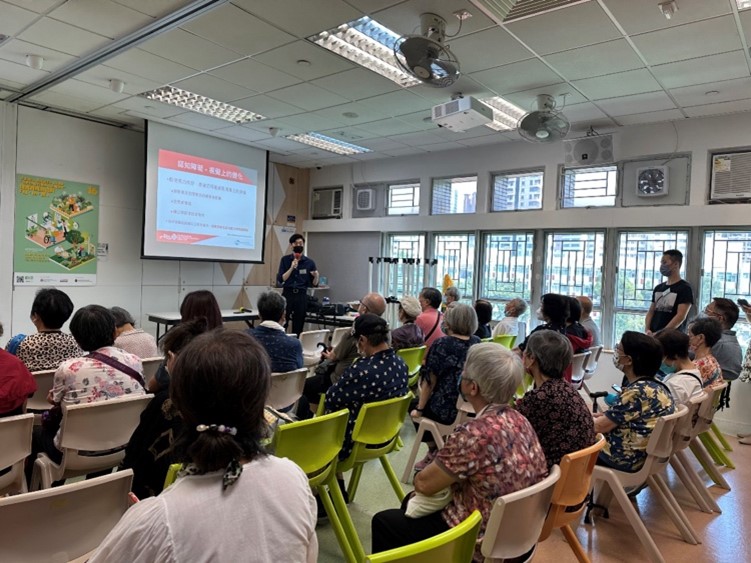
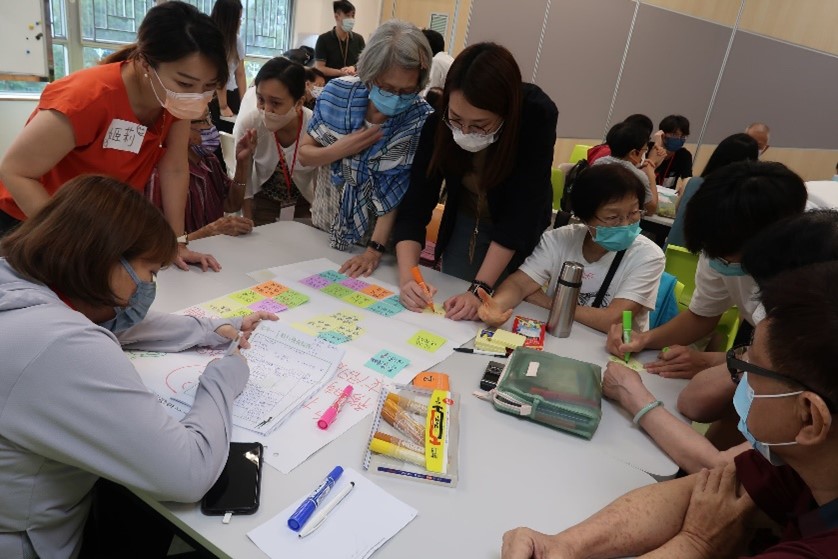
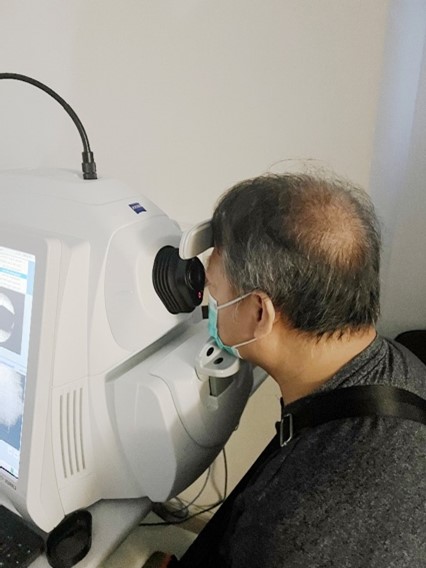
Wisdom in the Community: Designers Should Not Underestimate the Ability of Older Adults
The project team stresses the significance of maintaining curiosity while gathering authentic user needs. There is a common presumption that older adults cannot clearly express their needs, leading to decisions being made on their behalf without truly understanding their actual requirements. Contrary to this belief, older adults are capable of identifying pain points and can even highlight deficiencies in existing systems. Therefore, the project team delved deeply into the users’ perspectives, consistently asking ‘why’ to reveal the real issues highlighted by older adults. This approach allowed the designers to pinpoint flaws in current practices. For instance, during the workshops, participants noted difficulties in properly using medication, which could be attributed to small text on medication packaging or challenges some older adults face in administering eye drops steadily. Moreover, the project team emphasized the importance of flexibly using design thinking tools and choosing the right tools for different project stages and target demographics, rather than strictly adhering to a set sequence of steps.
